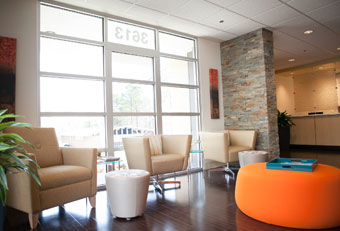Almost every article one reads about tubal ligation stresses that it is permanent. Most doctors and the lay public believe this to be true. In my experience, however, tubal ligation is reversible in over 95% cases!
Doctors stress that tubal ligation is a permanent method birth control because it cannot be discontinued easily such as stopping the use of birth control pills or the patch, removing an IUD, or avoiding the use of barriers contraceptives (condom or diaphragm). In the past, reversing a tubal ligation procedure involved complicated surgery with its attendant high cost (up to $35,000). The outpatient tubal ligation procedure that I have developed is uncomplicated surgery and avoids the expense of hospital charges. This has reduced the cost of tubal reversal surgery to under $6000. This is less than the cost of a single treatment cycle with in vitro fertilization (averaging $10,000 – $12,000). My effort over the past 3 decades has been to make tubal reversal surgery easy to undergo and affordable for couples.
There are some methods of female sterilization that are not reversible. These include complete removal of the fallopian tubes (total salpingectomy) and extremely destructive methods of partial salpingectomy that do not leave two segments to repair. An example of the latter is when only a short portion of the tube is attached to the uterus and the remaining segment contains only fimbrial tissue with no tubal muscle or opening. In this case, the fimbrial tissue alone cannot be rejoined successfully to the uterine segment of tube. Fortunately, this is an unusual occurrence. In cases where there is a sufficient length of tube attached to the uterus, it can be opened and be able function normally even without the fimbrial end. This is called ampullary salpingostomy. This technique is useful in reversing a fimbriectomy (removal of the fimbrial or ovarian end of the fallopian tube).
Reviewing the operative report from a tubal ligation procedure usually will indicate how destructive the procedure was. When there is a question about this, diagnostic laparoscopy can be performed to examine what remains of the fallopian tubes. If there are sufficient segments to repair, tubal reversal can be done right then while the patient is under anesthesia.
The best method of tubal ligation to reverse is the clip procedure. The Hulka Clip was developed in the 1970s by Dr. Jaroslav Hulka, a professor of obstetrics and gynecology at the University of North Carolina at Chapel Hill. (Dr. Hulka was one of my most influential teachers during my residency in ob-gyn at UNC.) The tubal ring also is an excellent method for reversing. The clip and ring procedures tend to damage the least amount of the fallopian tube and leave behind long segments to repair.
The most common tubal ligation procedures involves tying and cutting the tubes (ligation/resection) or burning the tubes (coagulation). Experience shows that 98% of these procedures are reversible.
Summary: Tubal ligation is not really permanent in the sense that it can be reversed in almost all cases. This is fortunate for those women who want another chance to have a baby after having their tubes tied. Tubal reversal is more successful, less complicated, and less expensive than the alternative treatment of in vitro fertilization.









